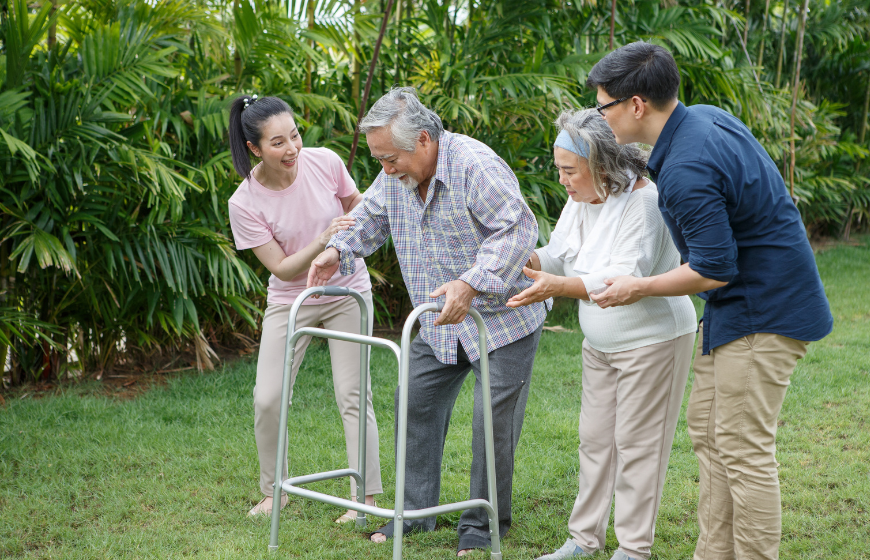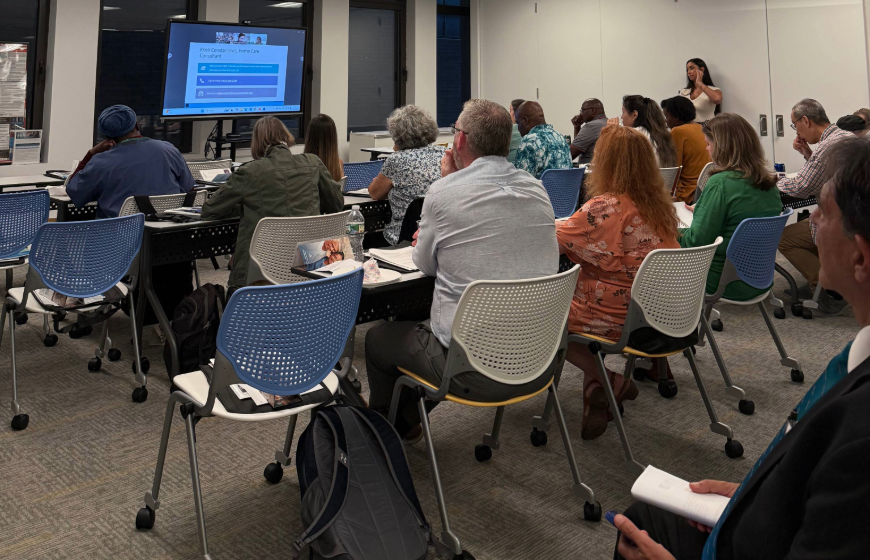If you are someone with an elderly loved one, it just so happens that May is Older Americans Month, an ideal time to become cognizant about aging family members and proactive about next steps. It’s often a daunting task to take an honest look at the current health status of the older adults in your life and implement a plan of action. As a large home care organization, we’ve put together a list of the demonstrable signs of older adult decline that in our experience can help you and your family members discern your loved one’s needs.
The first step is to recognize the signs of older adult decline; many of which are often right before your eyes, but are easy to ignore.
Functional Impairments
See if your loved one can:
- Clasp their hands behind their head and their back. If not, this may indicate an impaired ability to get dressed, do household chores, or bathe independently.
- Get up from a chair without using their hands for support. If not, this may signal musculoskeletal decline.
- Stand on their tippy toes for at least 5 seconds. If not, there may be issues with balance, a serious risk for falls.
- Pick up a penny that has dropped on the floor. This test can indicate current vision, strength and balance capabilities.
Sensory and Cognitive Impairments
Use the following brain games to gauge how your loved one’s sensory systems are functioning:
- Whisper test: Pick a phrase (like: I’m hungry for lunch) and whisper the phrase to the older adult you are assessing. Can they understand it and repeat it back to you?
- Ask your loved one to explain their medication routine to you out loud.
- Confirm that your loved one has at least one emergency number readily accessible (and ideally memorized).
The information gleaned from the above activities is critical for you and your loved one’s healthcare provider. Be sure to share your assessment results with a trusted professional. No matter the outcome, try to remain positive.

Next Steps
Once you’ve assessed the level of care needed, if it hasn’t been done so already, it’s time to bring other family members into the equation. The demands of elder care are never easy, but adding relatives into the equation who may be hundreds of miles away make it even more challenging. You can also consider respite care to give you a well-deserved break to recharge.
Fortunately, there are strategies to decrease the burden of long-distance caregiving.
Start the conversation early. It will make you feel secure knowing that your care choices align with your loved one’s desires. Plus, understanding their wishes allows for an opportunity to prepare. Some things your loved one will need to consider include:
-
- What are my medical wishes should life-sustaining treatment be necessary?
- Who will make health-care decisions or control my finances if I cannot be autonomous?
- How much money is allocated towards care expenses?
- How do I prefer to live if I grow unable to care for myself?
- Being open and honest is the absolute best policy.
Schedule a family meeting. At this point, you’ll have the information you need to assign roles to the appropriate family members. Find a local elder law attorney who can represent your aging parent while you are away. This may also be the time to look for care services in your parent’s area that are reputable, accessible, and compassionate.
Ask for help. No question is too insignificant to ask so seek out expert advice. Even if elder care is not in your foreseeable future, plan ahead regarding resources to assist if crisis strikes. When a home health care situation arises, it’s often at an unexpected, emergency stage. Looking at the future will help keep you from being blind-sided.
If distance constraints your ability to care for an aging loved one, talk to them about home care options. At Alliance Homecare, we know how emotional and overwhelming it can be to recognize that a loved one may need extra support. That’s why we’ve built a care team you can trust. We hire some of the best nurses in the field and two of our founders who are nurses, we have a deep commitment to dignity, compassion, and consistent, high-quality carea. We use the “The Grandma’s Rule®” philosophy when hiring new caregivers to make sure you and your loved one are treated like family.
Questions about caring for an older loved one? Call us 646.518.5645 or connect with us online about home care services.




